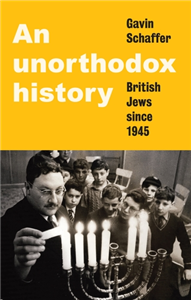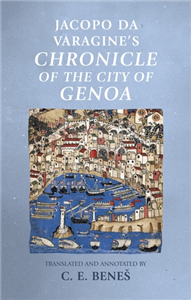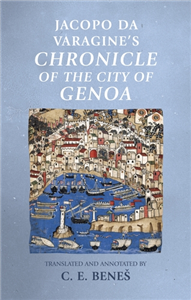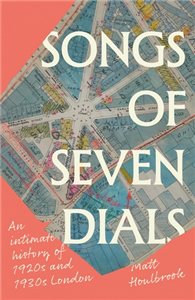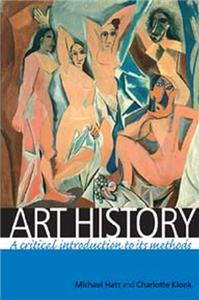Your Search Results
-
A Walk through History
A Walk Through History is a Russian publishing house specializing in children’s nonfiction. Since 2011 it has created and designed about 50 titles on various periods of history and other subjects such as mathematics, sport, plants and animals.
View Rights Portal
-
Promoted ContentJuly 1975
Ideale und Wirklichkeit in der russischen Literatur
Autorisierte Übersetzung von B. Ebenstein. Neu herausgegeben von Peter Urban
by Petr Kropotkin, Peter Urban, B. Ebenstein
Peter Urban (1941-2013), war Lektor im Suhrkamp Verlag, Mitbegründer des Verlags der Autoren und der bedeutendste Vermittler und Übersetzer russischer, serbischer und tschechischer Literatur im deutschen Sprachraum. Er übersetzte u.a. das Gesamtwerk von Tschechow, die Prosa Puschkins, Werke von Daniil Charms, Isaak Babel, Leonid Dobytschin und Gennadi Gor.
-
Promoted ContentApril 1983
Rede gegen den Krieg
Politische Flugschriften. Herausgegeben von Peter Urban
by Lew Tolstoj, Peter Urban
Lew Tolstoj wurde am 9. September 1828 in Jasnaja Poljana bei Tula geboren und starb am 20. November 1910 in Astapowo, heute zur Oblast Lipezk an einer Lungenentzündung. Tolstoj entstammte einem russischen Adelsgeschlecht. Als er mit neun Jahren Vollwaise wurde, übernahm die Schwester seines Vaters die Vormundschaft. An der Universität Kasan begann er 1844 das Studium orientalischer Sprachen. Nach einem Wechsel zur juristischen Fakultät brach er das Studium 1847 ab, um zu versuchen, die Lage der 350 geerbten Leibeigenen im Stammgut der Familie in Jasnaja Poljana mit Landreformen zu verbessern. Er erlebte von 1851 an in der zaristischen Armee die Kämpfe im Kaukasus und nach Ausbruch des Krimkriegs 1854 den Stellungskrieg in der belagerten Festung Sewastopol. Die Berichte aus diesem Krieg (1855: Sewastopoler Erzählungen) machten ihn als Schriftsteller früh bekannt. Er bereiste aus pädagogischem Interesse 1857 und 1860/61 westeuropäische Länder und traf dort auf Künstler und Pädagogen. Nach der Rückkehr verstärkte er die reformpädagogischen Bestrebungen und richtete Dorfschulen nach dem Vorbild Rousseaus ein. Seit 1855 lebte er abwechselnd auf dem Gut Jasnaja Poljana, in Moskau, und in Sankt Petersburg. Im Jahre 1862 heiratete er die 18-jährige deutschstämmige Sofja Andrejewna Behrs, mit der er insgesamt 13 Kinder hatte. In den folgenden Jahren seiner Ehe schrieb er die monumentalen Romane Krieg und Frieden sowie Anna Karenina, die Tolstojs literarischen Weltruhm begründeten. Peter Urban (1941-2013), war Lektor im Suhrkamp Verlag, Mitbegründer des Verlags der Autoren und der bedeutendste Vermittler und Übersetzer russischer, serbischer und tschechischer Literatur im deutschen Sprachraum. Er übersetzte u.a. das Gesamtwerk von Tschechow, die Prosa Puschkins, Werke von Daniil Charms, Isaak Babel, Leonid Dobytschin und Gennadi Gor.
-
 Trusted Partner
August 2022
Trusted Partner
August 2022Werke
Der Reprint der legendären Werkausgabe zum 100. Todestag des Autors | Endlich wieder lieferbar
by Velimir Chlebnikov, Peter Urban, Marie Luise Knott
In seinem Manifest »Eine Ohrfeige dem öffentlichen Geschmack« forderte Velimir Chlebnikov 1912, »die alten Großen« – Puschkin, Dostojewski, Tolstoi usw. – »vom Dampfer der Gegenwart zu stoßen«. Der Begründer des russischen Futurismus, Generationengenosse von Franz Kafka und James Joyce, von Kurt Schwitters und Raoul Hausmann, träumte von einer radikalen poetischen Erneuerung der Sprache. Er war Wegbereiter der konkreten Poesie und des Surrealismus. In seinen Gedichten kombiniert er die »Sternensprache« mit der Alltagssprache, den »Zaum« (eine Sprache der Laute und der Zufallsschöpfungen) mit der »Zahlenrede«. Der Reprint erscheint zum 100. Todestag des Autors und zum 50. Geburtstag der legendären Gesamtausgabe, die Peter Urban 1972 im Rowohlt Verlag als exzeptionelles übersetzerisches Kollektivunternehmen realisiert hat. Mitwirkende waren u.a. H.C. Artmann, Paul Celan, Hans Magnus Enzensberger, Ernst Jandl, Friederike Mayröcker, Franz Mon, Oskar Pastior und Gerhard Rühm. Ein anarchisches Experiment, in dessen Bahnen sich die translinguale Poesie heute bewegt.
-
 Trusted Partner
Humanities & Social SciencesFebruary 2025
Trusted Partner
Humanities & Social SciencesFebruary 2025An unorthodox history
British Jews since 1945
by Gavin Schaffer
A bold, new history of British Jewish life since the Second World War. Historian Gavin Schaffer wrestles Jewish history away from the question of what others have thought about Jews, focusing instead on the experiences of Jewish people themselves. Exploring the complexities of inclusion and exclusion, he shines a light on groups that have been marginalised within Jewish history and culture, such as queer Jews, Jews married to non-Jews, Israel-critical Jews and even Messianic Jews, while offering a fresh look at Jewish activism, Jewish religiosity and Zionism. Weaving these stories together, Schaffer argues that there are good reasons to consider Jewish Britons as a unitary whole, even as debates rage about who is entitled to call themselves a Jew. Challenging the idea that British Jewish life is in terminal decline. An unorthodox history demonstrates that Jewish Britain is thriving and that Jewishness is deeply embedded in the country's history and culture.
-
 Trusted Partner
Trusted Partner
-
 Trusted Partner
Trusted Partner
-
 Trusted Partner
Geography & the EnvironmentAugust 2020
Trusted Partner
Geography & the EnvironmentAugust 2020Urban transformations and public health in the emergent city
by Michael Keith, Andreza Aruska de Souza Santos, Susan Parnell
The imperatives of public health shaped our understanding of the cities of the global north in the first industrial revolutions of the nineteenth and twentieth centuries. They are doing so again today, reflecting new geographies of the urban age of the twenty-first. Emergent cities in parts of the globe experiencing most profound urban growth face major problems of economic, ecological and social sustainability when making sense of new health challenges and designing policy frameworks for public health infrastructures. The rapid evolution of complex 'systems of systems' in today's cities continually reconfigure the urban commons, reshaping how we understand urban public health, defining new problems and drawing on new data tools for analysis that work from the historical legacies and geographical variations that structure public health systems.
-
 Trusted Partner
Lifestyle, Sport & LeisureAugust 2016
Trusted Partner
Lifestyle, Sport & LeisureAugust 2016Culture in Manchester
Institutions and urban change since 1850
by Janet Wolff, Mike Savage
This book brings together studies of cultural institutions in Manchester from 1850 to the present day, giving an unprecedented account of the city's cultural evolution. These bring to light the remarkable range of Manchester's contribution to modern cultural life, including the role of art education, popular theatre, religion, pleasure gardens, clubs and societies. The chapters show the resilience and creativity of Manchester's cultural institutions since 1850, challenging any simple narrative of urban decline following the erosion of Lancashire's industrial base, at the same time illustrating the range of activities across the social classes. This book will appeal to everyone interested in the cultural life of the city of Manchester, including cultural historians, sociologists and urban geographers, as well as general readers with interests in the city. It is written by leading international authorities, including Viv Gardner, Stephen Milner, Mike Savage, Bill Williams and Janet Wolff.
-
 Trusted Partner
Humanities & Social SciencesJuly 2022
Trusted Partner
Humanities & Social SciencesJuly 2022Jacopo da Varagine's Chronicle of the city of Genoa
by C. E. Beneš
This book offers the first English translation of the Chronicle of the city of Genoa by the thirteenth-century Dominican Jacopo da Varagine, an author best known for his monumental book of saints' lives, the Golden legend. Jacopo's Chronicle presents a coherent vision of Genoa's place in history, the cosmos and Creation as written by the city's own archbishop - mixing eyewitness accounts with scholarly research about the city's origins and didactic reflections on the proper conduct of public and private life. Accompanied by an extensive introduction, this complete translation provides a unique perspective on a dynamic medieval city-state from one of its most important officials, broadening the available literature in English on medieval Italian urban life.
-
 Trusted Partner
Humanities & Social SciencesNovember 2019
Trusted Partner
Humanities & Social SciencesNovember 2019Jacopo da Varagine's Chronicle of the city of Genoa
by C. E. Beneš, Rosemary Horrox
This book offers the first English translation of the Chronicle of the city of Genoa by the thirteenth-century Dominican Jacopo da Varagine, an author best known for his monumental book of saints' lives, the Golden legend. Jacopo's Chronicle presents a coherent vision of Genoa's place in history, the cosmos and Creation as written by the city's own archbishop - mixing eyewitness accounts with scholarly research about the city's origins and didactic reflections on the proper conduct of public and private life. Accompanied by an extensive introduction, this complete translation provides a unique perspective on a dynamic medieval city-state from one of its most important officials, broadening the available literature in English on medieval Italian urban life.
-
 Trusted Partner
Humanities & Social SciencesNovember 2019
Trusted Partner
Humanities & Social SciencesNovember 2019Jacopo da Varagine's Chronicle of the city of Genoa
by Carrie Beneš, Rosemary Horrox
This book offers the first English translation of the Chronicle of the city of Genoa by the thirteenth-century Dominican Jacopo da Varagine, an author best known for his monumental book of saints' lives, the Golden legend. Jacopo's Chronicle presents a coherent vision of Genoa's place in history, the cosmos and Creation as written by the city's own archbishop - mixing eyewitness accounts with scholarly research about the city's origins and didactic reflections on the proper conduct of public and private life. Accompanied by an extensive introduction, this complete translation provides a unique perspective on a dynamic medieval city-state from one of its most important officials, broadening the available literature in English on medieval Italian urban life.
-
 Trusted Partner
Trusted Partner
-
 Trusted Partner
Humanities & Social SciencesAugust 2024
Trusted Partner
Humanities & Social SciencesAugust 2024The machinic city
Media, performance and participation
by Marcos P. Dias
As human and machine agency become increasingly intermingled and digital media is overlaid onto the urban landscape, The machinic city argues that performance art can help us to understand contemporary urban living. Dias analyses interventions from performance artists such as Blast Theory, Rafael Lozano-Hemmer and Rimini Protokoll, which draw from a rich history of avant-garde art movements to create spaces for deliberation and reflection on urban life, and speculation on its future. While cities are increasingly controlled by autonomous processes mediated by technical machines, Dias analyses the performative potential of the aesthetic machine, as it assembles with media, capitalist, human and urban machines. The aesthetic machine of performance art in urban space is examined through its different components - design, city and technology actants. This unveils the unpredictable nature and emerging potential of performance art as it unfolds in the machinic city.
-
 Trusted Partner
Humanities & Social SciencesMay 2021
Trusted Partner
Humanities & Social SciencesMay 2021Doing digital history
by Jonathan Blaney, Jane Winters, Sarah Milligan, Martin Steer
-
 Trusted Partner
Trusted Partner
-
 Trusted Partner
Humanities & Social SciencesMarch 2017
Trusted Partner
Humanities & Social SciencesMarch 2017The empire in one city?
Liverpool's inconvenient imperial past
by Sheryllynne Haggerty, Andrew Thompson, Anthony Webster, John M. MacKenzie, Nicholas J. White
From the late eighteenth century to the early twentieth century, Liverpool was frequently referred to as the 'second city of the empire'. Yet, the role of Liverpool within the British imperial system and the impact on the city of its colonial connections remain underplayed in recent writing on both Liverpool and the empire. However, 'inconvenient' this may prove, this specially-commissioned collection of essays demonstrates that the imperial dimension deserves more prevalence in both academic and popular representations of Liverpool's past. Indeed, if Liverpool does represent the 'World in One City' - the slogan for Liverpool's status as European Capital of Culture in 2008 - it could be argued that this is largely down to Merseyside's long-term interactions with the colonial world, and the legacies of that imperial history. In the context of Capital of Culture year and growing interest in the relationship between British provincial cities and the British empire, this book will find a wide audience amongst academics, students and history enthusiasts generally.
-
 Trusted Partner
Humanities & Social SciencesOctober 2025
Trusted Partner
Humanities & Social SciencesOctober 2025Songs of Seven Dials
An intimate history of 1920s and 1930s London
by Matt Houlbrook
The untold story of a remarkable neighbourhood and the battle to define modern London. Throughout the 1920s and 1930s, Seven Dials was one of London's most diverse neighbourhoods, home to migrant and working-class communities, bohemian clubs and cafes. But business leaders and city planners had other ideas. Beginning with a rancorous libel trial of 1927, in which a Sierra Leonean café owner and his wife confronted the racist newspaper that destroyed their business, Matt Houlbrook reveals the surprising history of this remarkable neighbourhood. He traces how tensions that simmered on the streets and finally exploded in court betrayed the politics of urban 'improvement' and the 'colour bar'. Underlying the trial was a series of troubling questions that would define Britain in the twentieth century - about race, class and the boundaries of belonging, gentrification and the kind of city London would become. Imaginative, powerful and deeply moving, Songs of Seven Dials is an important new history of London in the 1920s and 1930s.
-
 Trusted Partner
The ArtsMarch 2006
Trusted Partner
The ArtsMarch 2006Art history
A critical introduction to its methods
by Michael Hatt, Charlotte Klonk
Art History: A critical introduction to its methods provides a lively and stimulating introduction to methodological debates within art history. Offering a lucid account of approaches from Hegel to post-colonialism, the book provides a sense of art history's own history as a discipline from its emergence in the late-eighteenth century to contemporary debates. By explaining the underlying philosophical and political assumptions behind each method, along with clear examples of how these are brought to bear on visual and historical analysis, the authors show that an adherence to a certain method is, in effect, a commitment to a set of beliefs and values. The book makes a strong case for the vitality of the discipline and its methodological centrality to new fields such as visual culture. This book will be of enormous value to undergraduate and graduate students, and also makes its own contributions to ongoing scholarly debates about theory and method. ;
-
 Trusted Partner
Humanities & Social SciencesApril 2025
Trusted Partner
Humanities & Social SciencesApril 2025The Derby philosophers
Science and culture in British urban society, 1700–1850
by Paul A. Elliott
The Derby Philosophers focuses upon the activities of a group of Midland intellectuals that included the evolutionist and physician Erasmus Darwin, Rev. Thomas Gisborne the evangelical philosopher and poet, Robert Bage the novelist, Charles Sylvester the chemist and engineer, William George and his son Herbert Spencer, the internationally renowned evolutionist philosopher who coined the phrase 'survival of the fittest', and members of the Wedgwood and Strutt families. The book explores how, inspired by science and through educational activities, publications and institutions including the famous Derbyshire General Infirmary (1810) and Derby Arboretum (1840), the Derby philosophers strove to promote social, political and urban improvements with national and international consequences. Much more than a parochial history of one intellectual group or town, this book examines science, politics and culture during one of the most turbulent periods of British history.
-
 Trusted Partner
Trusted Partner








